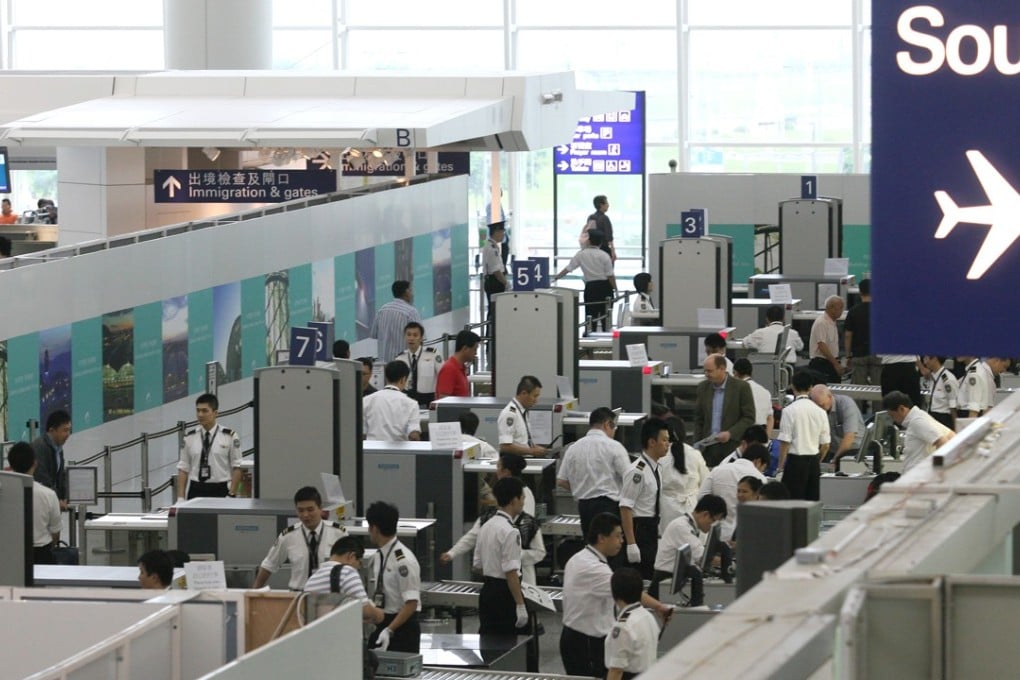Exclusive | Faster security screening soon at Hong Kong airport, but passengers may bear cost of perk
New dedicated channel for premium customers to be launched in September, with service also open to travellers with special needs and reduced mobility

Speedy security screening at Hong Kong’s airport is about to get even faster, but this will come with higher costs – likely to be borne by airlines, which will pass them onto passengers.
Hong Kong International Airport is set to unveil a dedicated security channel for premium travellers departing the city, with the service also open to those with special needs and reduced mobility, those who are pregnant, the elderly and adults with infants, according to the Airport Authority, which operates the airport.
Industry sources have told the South China Morning Post that the airport will charge airlines HK$20 for just the premium passengers using the so-called “fast track” security service, to be officially launched in September.
Cathay Pacific Airways, Cathay Dragon and Hong Kong Airlines will also take part in a test run of the new facilities later this month. The three airlines said they welcomed “any initiative” that boosted the experience of passengers.